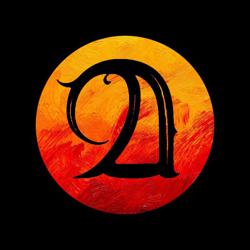Science Faction on Clubhouse

Description
Science is a creative, non-mechanical process. There is no algorithm for how to do it. And scientific theories cannot be evaluated by ticking off a checklist of rules the scientists are supposed to have followed. Controversies tend to arise and factions emerge, differing in terms of norms, methods, and sometimes even basic goals. Such differences are often hard to pin down. They’re one layer beneath what you read in journal papers, hinging on deep, unstated assumptions, sometimes philosophical in nature.
We’re here to see how understanding such things might help us to evaluate scientific theories today, broadly construed from physics to psychology to economics and even to aspects of the humanities. Any such abstract knowledge that purports to tell us something about the world needs to be checked against reality. And science--the search for the best explanations of observable facts--is by far the most powerful such method anyone has ever come up with to do that.
Here is one heap of observable facts: scientific progress itself over the last few centuries. Some critics, looking at the natural phenomenon that is science, came to very cynical conclusions--that “objectivity” is a ruse by which the establishment seeks more power, that the “scientific method” is an ahistorical fantasy, and that theory selection is ultimately just about institutional politics and popularity contests.
Certain critics do in fact have something to teach us about actual scientific practice, something that is valuable for assessing different research programs today. But let us not fall into the cynical trap of trying to inductively infer from their historical examples the impossibility of inductive inference.
Key Words: philosophy of science, scientific method, quantum foundations, string theory, quantum information, statistical mechanics of life, intellectual history, macroeconomics, climate science, crypto, the meaning of scientific concepts, the correspondence theory of truth, pluralism, postmodernism, pragmatism, positivism, wokism, Mach, Einstein, Bohr, Bohm, Bell, James, Quine, Popper, Hoffer, Kuhn, Lakatos, Feyerabend, Rorty, Bloor, Kripke.
Last 30 Records
| Day | Members | Gain | % Gain |
|---|---|---|---|
| June 07, 2024 | 84 | +1 | +1.3% |
| March 11, 2024 | 83 | +2 | +2.5% |
| January 20, 2024 | 81 | +2 | +2.6% |
| December 07, 2023 | 79 | +1 | +1.3% |
| October 30, 2023 | 78 | 0 | 0.0% |
| September 30, 2023 | 78 | +2 | +2.7% |
| September 01, 2023 | 76 | 0 | 0.0% |
| August 03, 2023 | 76 | +4 | +5.6% |
| July 03, 2023 | 72 | +1 | +1.5% |
| April 07, 2023 | 71 | 0 | 0.0% |
| March 12, 2023 | 71 | +1 | +1.5% |
| January 26, 2023 | 70 | +1 | +1.5% |
| January 18, 2023 | 69 | +1 | +1.5% |
| December 23, 2022 | 68 | +1 | +1.5% |
| November 23, 2022 | 67 | +1 | +1.6% |
| November 03, 2022 | 66 | +1 | +1.6% |
| October 21, 2022 | 65 | +2 | +3.2% |
| October 15, 2022 | 63 | -1 | -1.6% |
| September 29, 2022 | 64 | +1 | +1.6% |
| September 23, 2022 | 63 | +1 | +1.7% |
| September 10, 2022 | 62 | +2 | +3.4% |
| September 01, 2022 | 60 | +1 | +1.7% |
| August 25, 2022 | 59 | +1 | +1.8% |
| August 19, 2022 | 58 | +2 | +3.6% |
| July 11, 2022 | 56 | +1 | +1.9% |
| July 04, 2022 | 55 | +1 | +1.9% |
| June 14, 2022 | 54 | -1 | -1.9% |
| June 08, 2022 | 55 | +2 | +3.8% |
| May 26, 2022 | 53 | +1 | +2.0% |
| May 19, 2022 | 52 | +1 | +2.0% |































